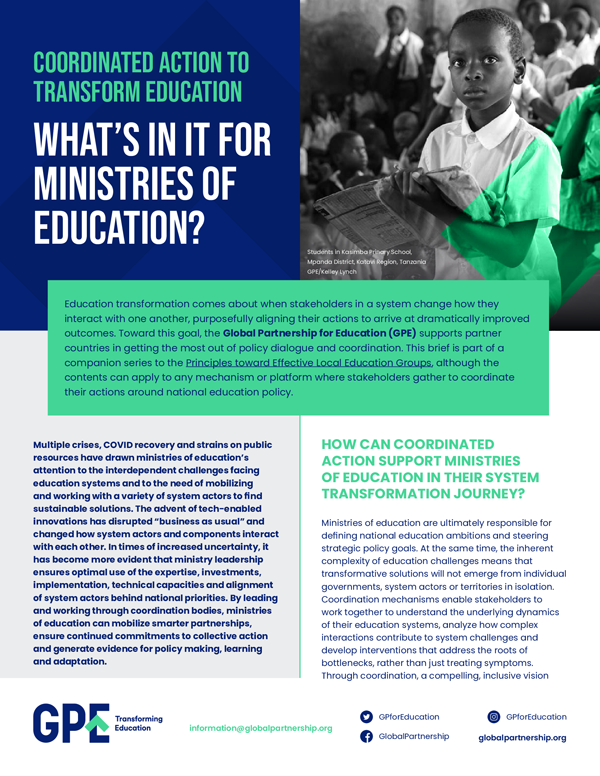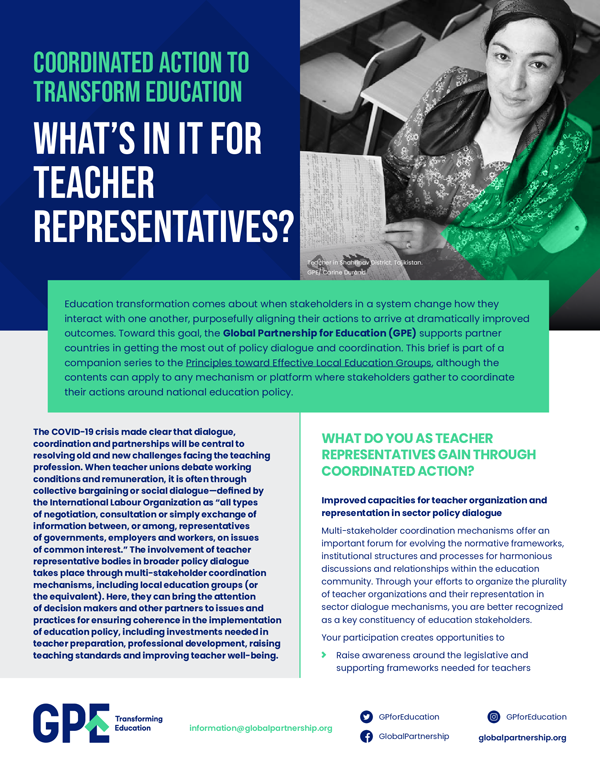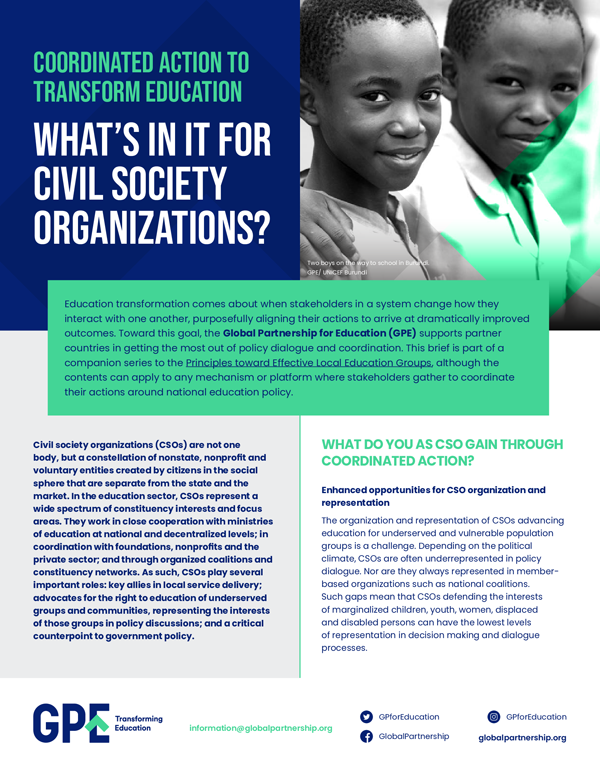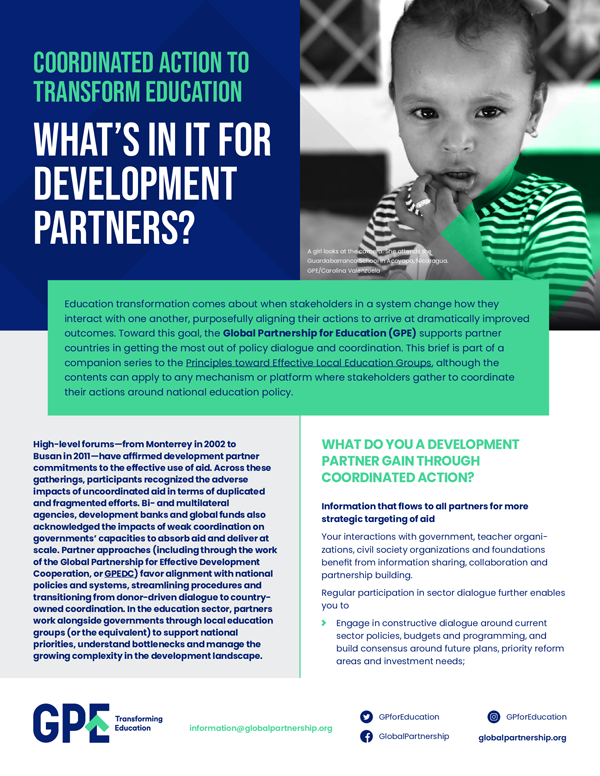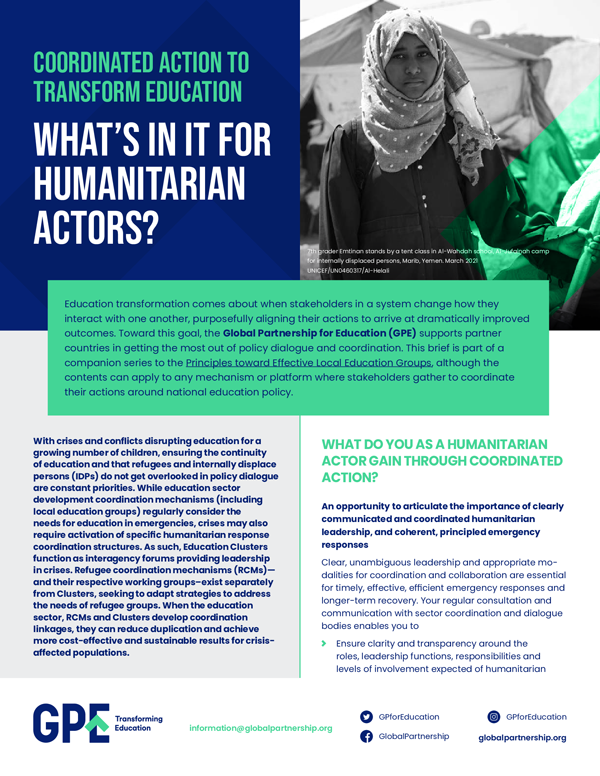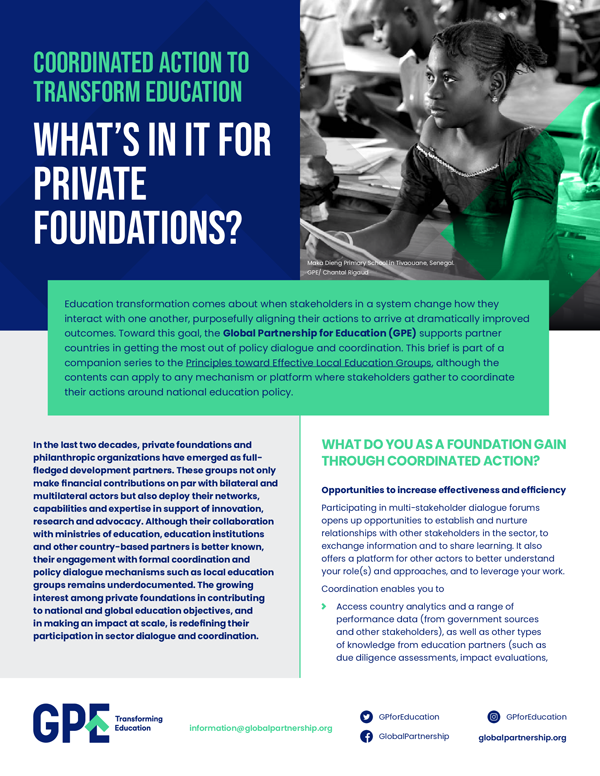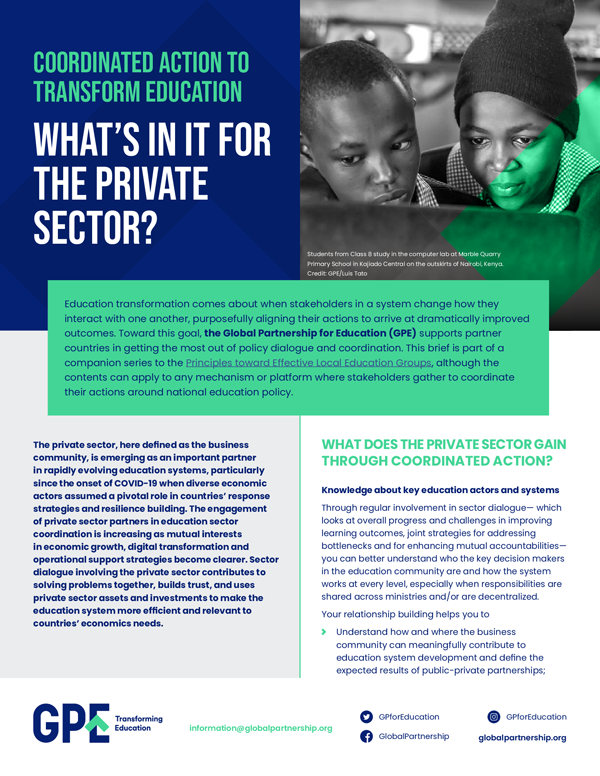In the education sector, strategies aimed at improving learning outcomes for all are often complex as they involve a broad range of actors with diverse perspectives, priorities, approaches and needs. This can lead to fragmentation and loss of coherence where leadership is under-invested or actors pull in different directions.
Coordinated action can help ensure that programming, resources and expertise align with country policy directives, reform efforts and priorities, and are also used efficiently.
Coordination draws a particular focus on equity, gender equality and inclusion issues when representatives of under-served, vulnerable and marginalized groups are closely engaged, as these actors dynamically contribute to education transformation processes.
Why coordination matters to GPE
GPE works with partner countries to navigate their education systems through the confluence of challenges arising from COVID-19 pandemic recovery and the global learning crisis. In light of continuing turbulence and massive education financing gaps, there is a tendency for multiplying bilateral engagements in problem-solving.


